Fritextsökning
Artiklar per år
Innehållstyper
-

A new special edition and a new event in Copenhagen – This is happening at Life Science Sweden 2024
The new year brings new features for the readers of Life Science Sweden.
-

Ingrid Lönnstedt: What does the p-value mean?
The smaller the better, and preferably smaller than 0.05. A p-value smaller than 5% means that the treatment effect is statistically significant at 5% significance level. But what does that mean? Read Ingrid Lönnstedt´s column to learn more.
-

Mathias Uhlén’s protein atlas is recognised as a global resource
The Human Protein Atlas is the first database in Sweden to be designated a Global Core Biodata Resource. According to Mathias Uhlén, this is a quality hallmark and an opportunity for additional collaborations.
-

Anna Törner: The clinical trial – Periscope to reality
What happens to the patients in the clinical trial is not very interesting, writes Anna Törner in a column.
-
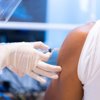
Study: Vaccination linked to lower risk of post-COVID
The risk of developing post-COVID after a COVID infection was reduced in vaccinated people, according to a new study from the University of Gothenburg.
-

High biological age is linked to a higher risk of dementia and stroke
It is a well-known fact that people age at different rates, and a recent study at the Karolinska Institute suggests that people with a biological age higher than their actual age are significantly more likely to suffer from dementia and stroke.
-

“A major energy boost for the entire cancer vaccine field”
The development of cancer vaccines has accelerated in recent years. Norwegian Ultimovacs is one of the companies attempting to develop a new type of treatment line for cancer patients, and the company recently presented positive data from a phase II study.
-

Marie Gårdmark: ”The situation is not satisfactory”
”The legislative tool-box is limited, but carrots in the form of longer exclusivity has already proven successful, this has for example increased registration of new products in rare diseases. But will it also work to increase access for all EU patients?” writes Marie Gårdmark in a column.
-

19 medicines in Sweden are under investigation in a major EMA inquiry
19 medicines marketed in Sweden are affected by an ongoing extensive European investigation into suspected fraud at an Indian contract research organisation. Among them are medicines for HIV, epilepsy, cancer and Parkinson’s, which may be withdrawn unless new evidence can be provided that they are up to standard.
-
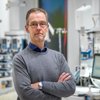
“Unfortunately, we are not strong when it comes to conducting clinical trials”
The number of company-initiated clinical trials conducted in Sweden has been declining in recent years. In mid-March, a government inquiry was presented that aimed to find answers and solutions to this downward trend. One of the proposals was a stable, sustainable and funded model for collaboration.
-

A billion-dollar acquisition makes Novo Nordisk even bigger in obesity
Danish pharmaceutical giant Novo Nordisk acquires Montreal-based Inversago Pharma, which develops treatments for obesity and diabetes.
-

The Swedish Life Science Office: “We lost in both coordination and manpower”
Since the turn of the year, the Swedish government’s life science office has operated at a lower capacity. Life Science Sweden has spoken to Pontus Holm, Departmental Secretary at the office, about the ongoing work.
-
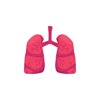
Nanoparticles to help detect pulmonary disease
Nanoparticles behave in a certain way in the air. Using this knowledge, researchers at Lund University have developed a new measurement method for lung examinations based on the phenomenon.
-
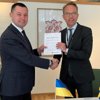
Swedish and Ukrainian Medical Product Agencies sign an agreement
The Directors-General of the Swedish and Ukrainian Medical Products Agencies have signed a cooperation agreement.
-
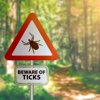
The first Lyme disease vaccine faces a delay
Pfizer and Valneva’s Lyme disease vaccine, which could be the first of its kind, is facing delays of about a year. The reason is problems at trial sites in the United States, which have forced the companies to drop half of the participants in an ongoing Phase III study.
-

Looking for greater Nordic cooperation – “We have Norway and Finland in our sights”
How can Medicon Valley Alliance bring the big pharmaceutical companies back to the organisation? Life Science Sweden discussed this topic and others with the cluster organisation’s new radar pair.
-

New report: Fewer PhDs in life sciences
A new report from Vinnova suggests that competency returns in the life science sector are declining.
-

Confidence in childhood vaccines is in decline worldwide
Since the pandemic, confidence in vaccinating children has plummeted. In a new report, UNICEF urges world leaders to act before the situation worsens. In 52 out of 55 countries surveyed, public perception of the importance of vaccinating children has declined.
-

New drug alert in the US: Rise in overdoses linked to the use of drugs for animals
A combination of the synthetic drugs fentanyl and xylazine, an animal tranquilizer, has been labelled a “growing threat” by the White House due to its role in the ongoing opioid crisis in the US.
-

“I am driven by the desire to develop a product that can be sold worldwide”
Ranked number one in the world by the WHO in diarrhoea research and soon in phase III studies for its vaccine candidate – Scandinavian Biopharma is rushing forward in the pursuit of the world’s first ETEC vaccine. Meet the company’s CEO Björn Sjöstrand.
-

Column: ”Cheating with pea flowers and does it matter whether you are right?”
Is it possible to forgive shortcuts or outright cheating in science - if it turns out that the researcher was ultimately right? Anna Törner discuss this topic in a column.
-

The Swedish National Board of Health and Welfare rejects prioritising andrology as a speciality
Male infertility can be linked to a shorter lifespan and several severe diseases, but when couples who want children are examined, the focus is on the woman. Experts in the field claim that andrology needs to become a speciality in Sweden to increase awareness and knowledge. But the Swedish National Board of Health and Welfare says that it is not a priority.
-

“An entire industry is about to be wiped out”
According to Jennie Ekbeck, CEO of Umeå Biotech Incubators, Sweden risks not having any small diagnostic companies left in five years.
-

How critical are the “Spermageddon” reports? – Researchers call for action
A much talked about meta-study indicates that sperm concentration in men’s seminal fluid has halved in 40 years. Experts in andrology that Life Science Sweden speaks to believe that the results must be taken seriously, and call for action from the Swedish authorities.